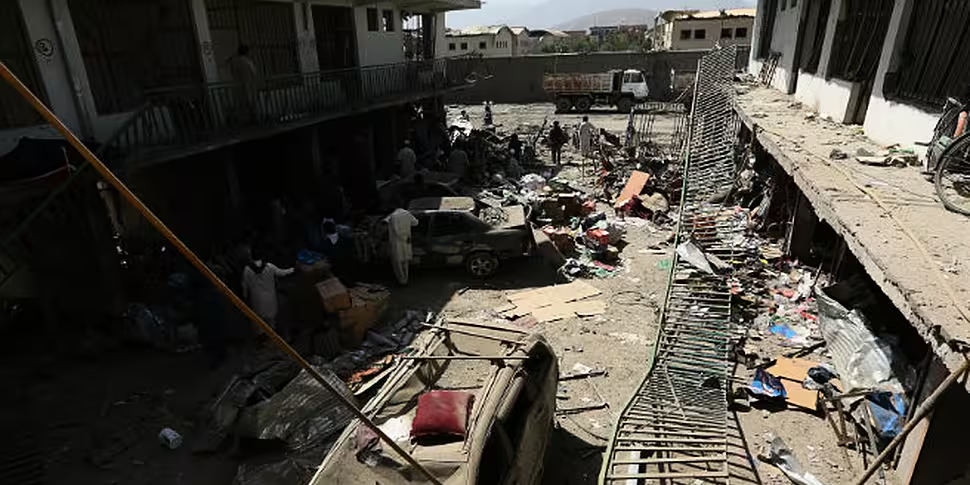50 people have been killed and hundreds more injured in two separate bomb attacks in the Afghan capital, Kabul, including a suicide bombing outside a police academy.
An attacker dressed in a police uniform walked up to a group of recruits and detonated his explosives-laden vest.
The explosion came after a massive truck bomb exploded near a government complex and military base in a residential area, killing more than a dozen people.
Some 240 others were wounded in the blast which was one of the largest ever in Kabul, flattening a city block and leaving a 30ft crater.
Security efforts in the capital have been stepped up following the attacks, with the Taliban claiming responsibility.
The attacks showed that militants were still able to strike at Afghan President Ashraf Ghani's heavily fortified centre of power.
The assaults undermined claims by security services and the government that the capital was immune from devastating attacks.
And the explosions marked a major challenge to the leader, who has made the peace process with the Taliban the hallmark of his presidency since taking office last year.
Mr Ghani said he would respond to the attacks with "force and power" but also said he was also determined to continue with efforts to bring peace to the country.
Later in the day, witnesses said there was a third blast in central Kabul, striking close to the airport, followed by the sound of gunfire.
And then a fourth was reported near the airport, security sources said, targeting an area close to coalition bases and Afghan government buildings.
The Afghan intelligence agency announced over a week ago that Mullah Mohammad Omar, the reclusive one-eyed founder and leader of the Taliban, had been dead for more than two years.
This sparked a leadership struggle among senior Taliban figures, raising concerns of a succession crisis that could fracture the group.
The appointment of Mullah Omar's deputy, Mullah Akhtar Mansoor, to succeed him sparked protests from his brother and son, and appeared to have led to serious rifts that internal committees were trying to heal.
The government said the earlier attacks were aimed at diverting public attention from the group's leadership struggles.









